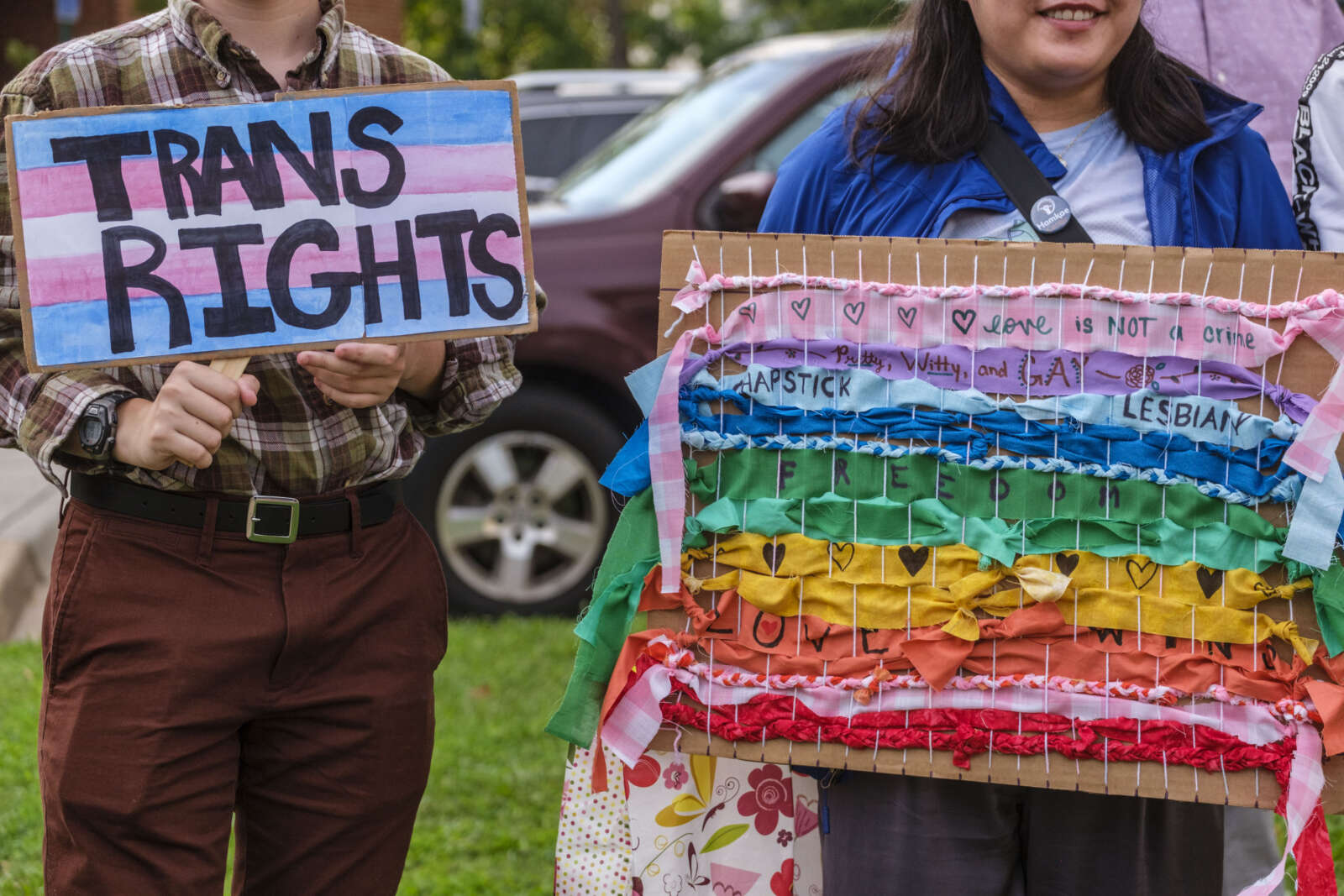
Students are getting organized in response to a lawsuit challenging Fairfax County Public Schools for its LGBTQ-inclusive policies.
The Pride Liberation Project, a student-run group that advocates for LGBTQ+ rights in Virginia, will host a rally “against anti-trans hate” outside Luther Jackson Middle School in Merrifield at 6 p.m. today (Thursday). The demonstration will precede the Fairfax County School Board’s meeting, which starts at 7 p.m.
“I’m really hoping that Fairfax County and our school board will stop this attempt to hurt and degrade my fellow students,” Laura Troung, a senior at Falls Church High School, said. “LGBTQIA+ students are already disproportionately facing the youth mental health crisis in addition to bullying and harassment at schools and this is just adding salt into the wound.”
Represented by America First Legal, a right-wing legal group led by former Donald Trump advisor Stephen Miller, an unnamed high school student sued the school board on March 4 over its policies dictating that students be treated in accordance with their gender identity.
In her complaint, the student says being “compelled” to address classmates by the name and pronoun that matches their gender identity violates her religious beliefs as a Roman Catholic. She also argues that the policies discriminate on the basis of sex because of her discomfort with using the same bathroom as transgender girls.
Students with the Pride Liberation Project, however, describe FCPS’ regulation 2603 as critical to creating a safe, welcoming environment for LGBTQ+ individuals.
Transgender youth whose peers affirmed their identities, including by using their correct names and pronouns, reported significant reductions in symptoms of severe depression, suicidal thoughts and suicide attempts in a 2018 study conducted by University of Texas at Austin researchers.
In contrast, reported school-based hate crimes targeting LGBTQ people have soared since 2015, particularly in states with laws that restrict the rights of transgender students or prohibit education on gender and sexuality, according to the Washington Post.
The Virginia Department of Education’s model policies directing schools to treat students based on their “biological sex” spurred protests and school walkouts across the state in September 2022, including ones organized by the Pride Liberation Project.
Students also rallied outside Luther Jackson Middle School last year after FCPS pledged not to adopt the state policies.
“The fact that so many of my friends and teachers respect my pronouns and my name is life-saving to me,” Moth DiNizzo, a McLean High School junior, said. “I know that they care about me and trust my own self-perception. It’s wonderful and I want everyone to experience that same joy of being known and trusted.”
The planned rally comes shortly after the Fairfax County Board of Supervisors designated March 31 as Transgender Visibility Day. The International Transgender Day for Visibility was created in 2009 to celebrate the lives and achievements of the transgender community.
At its meeting on Tuesday (March 19), the board approved the proclamation 9-0 with Springfield District Supervisor Pat Herrity, the board’s only Republican member, away from the table.
Supervisors said the designation is an important acknowledgement of the county’s diversity and their commitment as elected officials to support all residents.
“We have an obligation to do everything we can not just to protect [the LGBTQ+ community], but to use our voices to stand up and support them and to make sure that the rest of our community sees that that’s what their government is doing,” Chairman Jeff McKay said. “Regardless of what’s happening in Richmond, we will always stand up and fight to protect every single person in this county.”
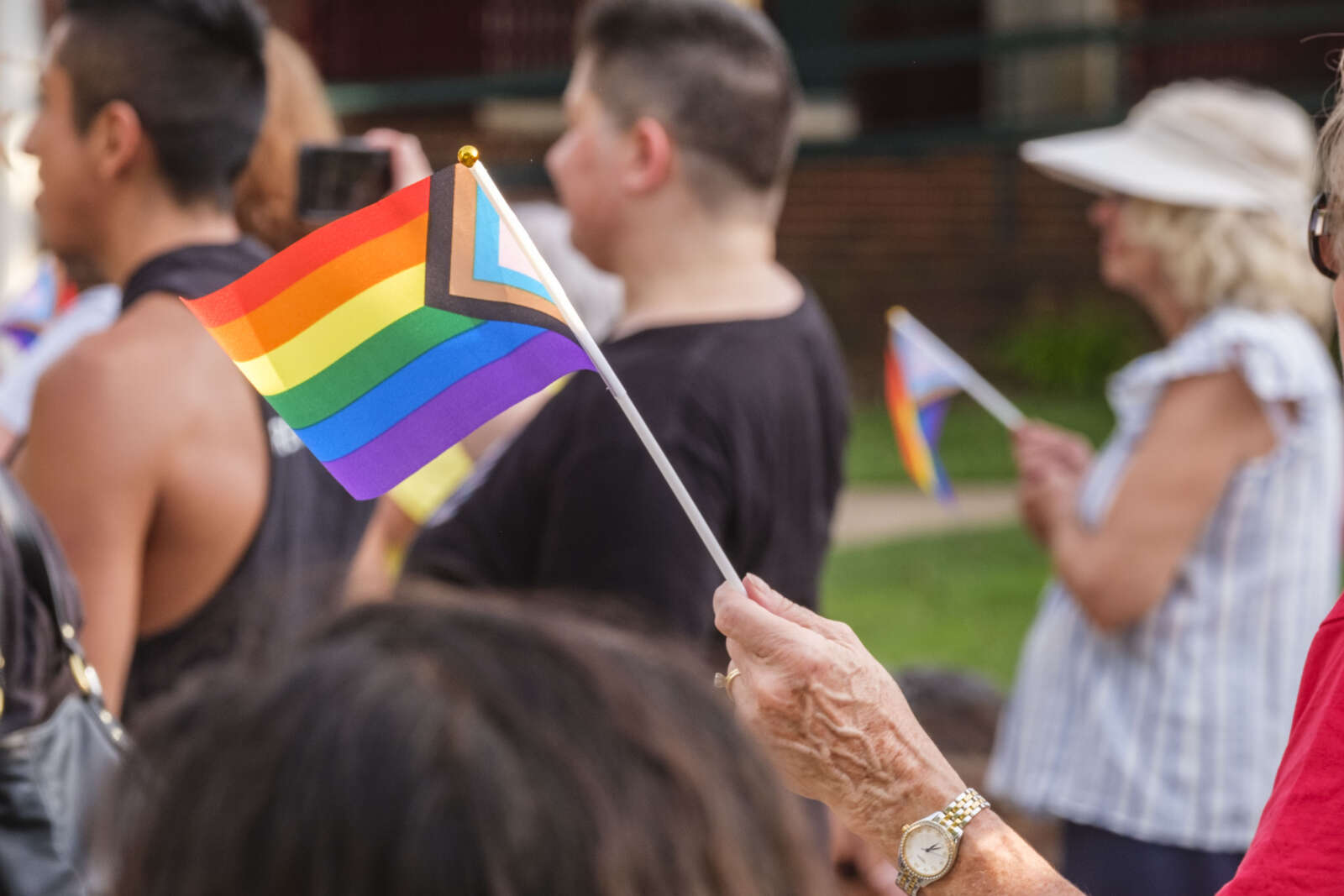
(Updated at 12:25 a.m.) A right-wing legal group led by Stephen Miller, a former advisor to Donald Trump when he was president, is challenging Fairfax County Public Schools over its policies supporting transgender students.
America First Legal filed a complaint against the Fairfax County School Board on Monday (March 4) arguing that the school system is discriminating on the basis of sex and religion by letting students use the names, pronouns and bathrooms that match their gender identity.
The complaint was submitted to the Fairfax County Circuit Court on behalf of an unnamed female student. It identifies “Jane Doe” as a current high school senior who has attended FCPS since 2014, when she was in third grade.
Her opposition to the regulations that the school board originally adopted in October 2020 stems from her beliefs as a “practicing Roman Catholic” that “rejection of one’s biological sex is a rejection of the image of God within that person,” the filing says.
According to the lawsuit, the student supports her peers using the name and pronoun they’re “comfortable with” and “having access to the use of private restrooms” if they don’t want to use ones that correspond with the sex they were assigned at birth.
However, she objects to being “compelled” to address other students by their “chosen” names and pronouns, and she says sharing bathrooms with transgender girls “makes her feel unsafe and uncomfortable.”
“The Petitioner lives in daily fear that if she speaks in a manner that is consistent with her sincerely held philosophical and religious beliefs, she will be subject to discipline, chastisement, and/or social ostracization,” the complaint said.
Last updated on April 21, 2022, FCPS Regulation 2603.2 says all students should be treated in accordance with their gender identity “to ensure that all students, including gender-expansive and transgender students experience a safe, supportive, and inclusive school environment.”
FCPS leaders maintained their support for the policy last year after the Virginia Department of Education released “model policies” directing public schools to treat students based on their “biological sex.” The state’s proposed policies prompted student protests in Fairfax County and across Virginia when they were first released in 2022.
The VDOE policies are facing a discrimination lawsuit filed last month by two transgender students backed by the ACLU of Virginia. Though an American First Legal advisor says FCPS’s policies contradict Virginia Supreme Court rulings, the U.S. Supreme Court upheld an appeals court decision in 2021 that found banning transgender students from using the bathroom that aligns with their gender identity is unconstitutional.
FCPS didn’t return a request for comment on America First Legal’s lawsuit by press time.
Providence District School Board Representative Karl Frisch, who chairs the board, stressed that FCPS “remains committed to fostering a safe, supportive, welcoming, and inclusive school environment for all students and staff, including our transgender and gender expansive students and staff.” Read More
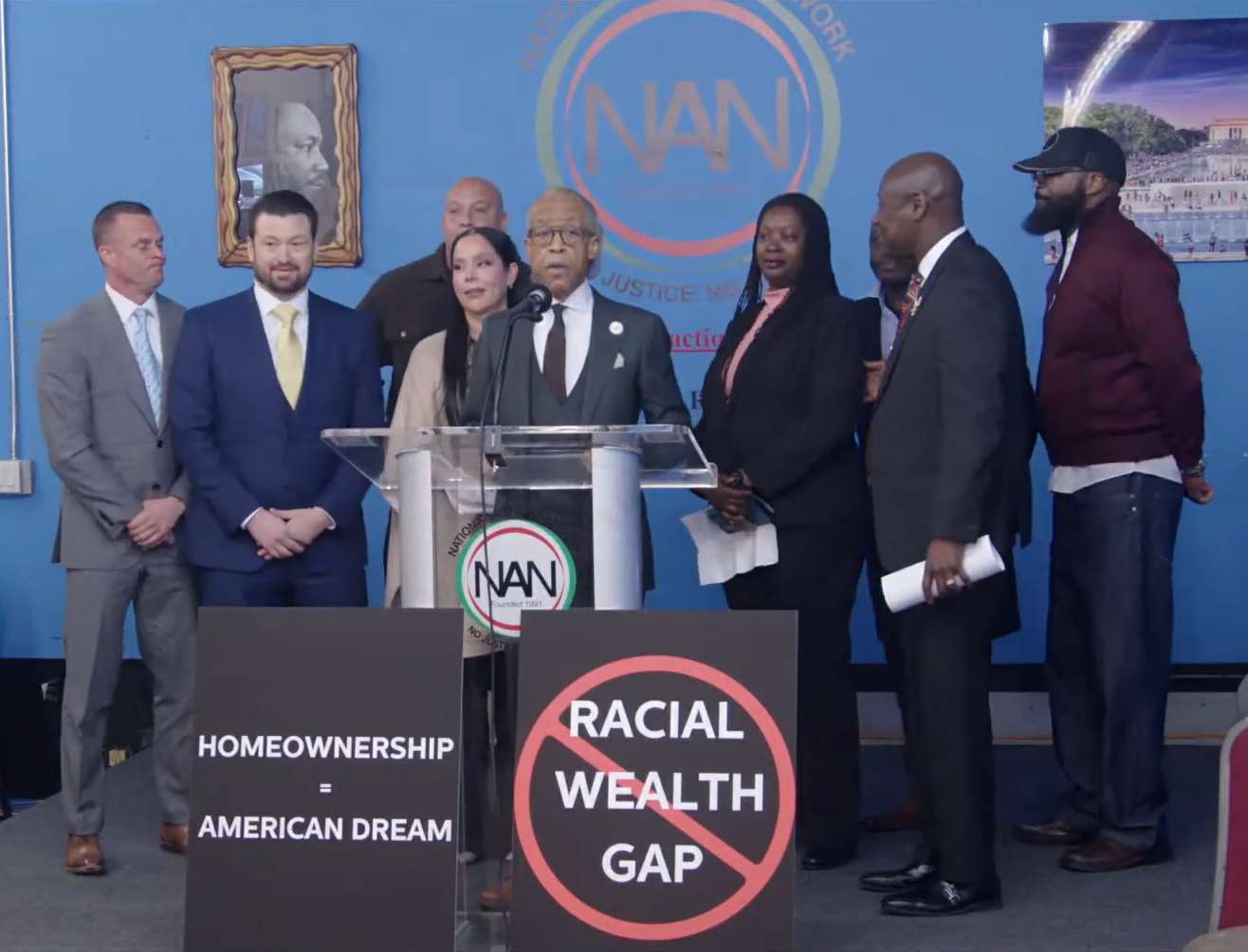
(Updated at 11 a.m. on 2/28/2024) Allegations of racist lending practices against Navy Federal Credit Union have solidified into a class action lawsuit.
Attorneys representing nine members of Navy Federal filed a complaint in federal court on Feb. 20 alleging that the Vienna-based financial institution “systematically discriminates” against people of color, particularly Black, Hispanic and Native American applicants, when determining whether to approve mortgage loans.
The lawsuit builds on a Dec. 14 story by CNN that found Navy Federal was more than twice as likely to reject Black mortgage applicants than their white counterparts, even when they have similar incomes, property values and neighborhood characteristics.
“Navy Federal claims that it champions community and that it is dedicated to embracing and celebrating diversity and inclusion in all the communities it serves. Of course, actions speak louder than words, and Navy Federal’s claims of community devotion ring hollow in the face of its systematic discrimination against non-white borrowers,” civil rights attorney Ben Crump said at a press conference in New York, where the lawsuit was publicly announced.
Consolidating four initially separate legal challenges, the lawsuit was filed in the U.S. District Court of the Eastern District of Virginia in Alexandria, since Navy Federal’s global headquarters are at 820 Follin Lane in Vienna.
Navy Federal, which serves current and former members of the military and their families, gave conventional home purchase mortgage loans to 77% of white applicants in 2022 but only 48% of Black applicants — a 29% disparity that’s the biggest of any major lender in the country, CNN reported, citing data that the credit union was required to report to the Consumer Financial Protection Bureau (CFPB).
Hispanic applicants were approved 56% of the time, while Native Americans and Asians saw approval rates of 64% and 69%, respectively.
Brought by plaintiffs from across the country who say they were either denied a loan or, in one case, issued one at a higher-than-average interest rate by Navy Federal, the 65-page complaint argues that the credit union’s practices amounted to racial discrimination in violation of federal laws, including the Fair Housing Act of 1968, the Equal Credit Opportunity Act, and the Civil Rights Act of 1866.
The complaint also alleges violations of state laws in California and Florida, where some of the plaintiffs are located.
“Harming its members and engaging in unlawful behavior is nothing new to Navy Federal, a company that has shown it simply does not care about equal housing, non-discrimination, or its members’ well-being,” the complaint says, noting that the credit union was ordered by the CFPB in 2016 to pay $23 million to members for making misleading threats in order to collect debts. Read More
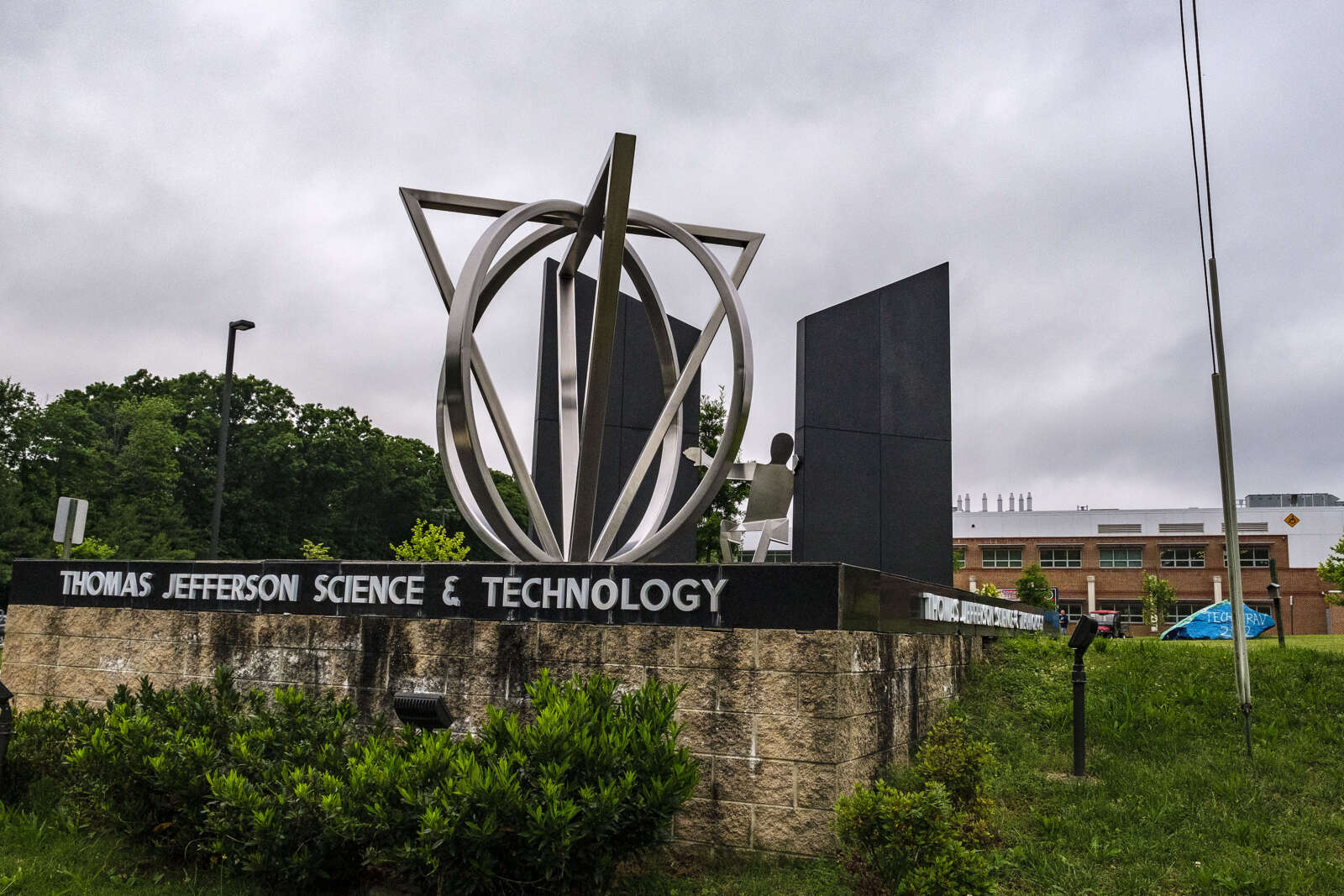
Thomas Jefferson High School for Science and Technology’s current admissions policy will remain in place after the U.S. Supreme Court declined to consider a lawsuit alleging that it discriminates against Asian students.
The Supreme Court denied a petition for a hearing today (Tuesday) by the Coalition for TJ, an advocacy group that sued the Fairfax County School Board in 2021 after the admissions process for the highly competitive magnet school was revised with the goal of diversifying the student body.
The Supreme Court’s decision not to take up the case ends a legal battle that lasted nearly three years and could’ve upended diversity initiatives in public education nationwide.
“We have long believed that the new admissions process is both constitutional and in the best interest of all of our students,” said School Board Chair Karl Frisch, who represents Providence District. “It guarantees that all qualified students from all neighborhoods in Fairfax County have a fair shot at attending this exceptional high school.”
The school board voted in December 2020 to eliminate a standardized test and application fee that were previously required for students seeking admittance into Thomas Jefferson High School (TJ). The board also raised the minimum grade point average for applicants, guaranteed eligibility to the top 1.5% of eighth graders at each middle school and added essay requirements and consideration of “experience factors” such as a student’s status as a recipient of free meals or involvement in special education.
Spurred by student activism after Fairfax County Public Schools reported that fewer than 10 Black students had been accepted in both 2019 and 2020, the policy overhaul has resulted in more diverse classes at TJ, particularly in terms of geography and income, since the changes took effect in 2021 for the Class of 2025.
Though Asian students got 61.6% of offers for the freshman class that entered last fall, compared to 19% for white students, 6.7% for Black students and 6% for Hispanic students, the Coalition for TJ has argued that the revised policy was designed to reduce the number of Asian students at the school, violating Constitutional protections against racial discrimination.
A district court judge agreed with the coalition in 2022 that Asian American students were “disproportionately harmed,” ordering FCPS to scrap the new admissions policy. However, that ruling was overturned last May by an appeals court panel that found the coalition had failed to prove that the school board “adopted its race-neutral policy with any discriminatory intent.”
The coalition petitioned the Supreme Court to pick up the case after the justices ruled in June 2023 that colleges can’t explicitly consider race as part of their admissions processes, ending decades of affirmative action programs intended to boost Black, Hispanic and other often underrepresented students.
Pacific Legal Foundation senior attorney Joshua Thompson, who represented the Coalition for TJ, says the Supreme Court “missed an important opportunity” to address admissions policies like the ones adopted for TJ that don’t explicitly consider race but still affect student demographics.
“Today, the American Dream was dealt a blow, but we remain committed to protecting the values of merit, equality, and justice,” Coalition for TJ co-founder Asra Nomani said in a statement. “…For the courageous families who have tirelessly fought for the principles that our nation holds dear, this decision is a setback but not a death blow to our commitment to the American Dream, which promises equal opportunity and justice for all.”
In a statement from FCPS, Frisch noted that TJ has accepted students from every Fairfax County middle school and maintained an average grade-point average for its incoming classes of 3.9 over the past three years.
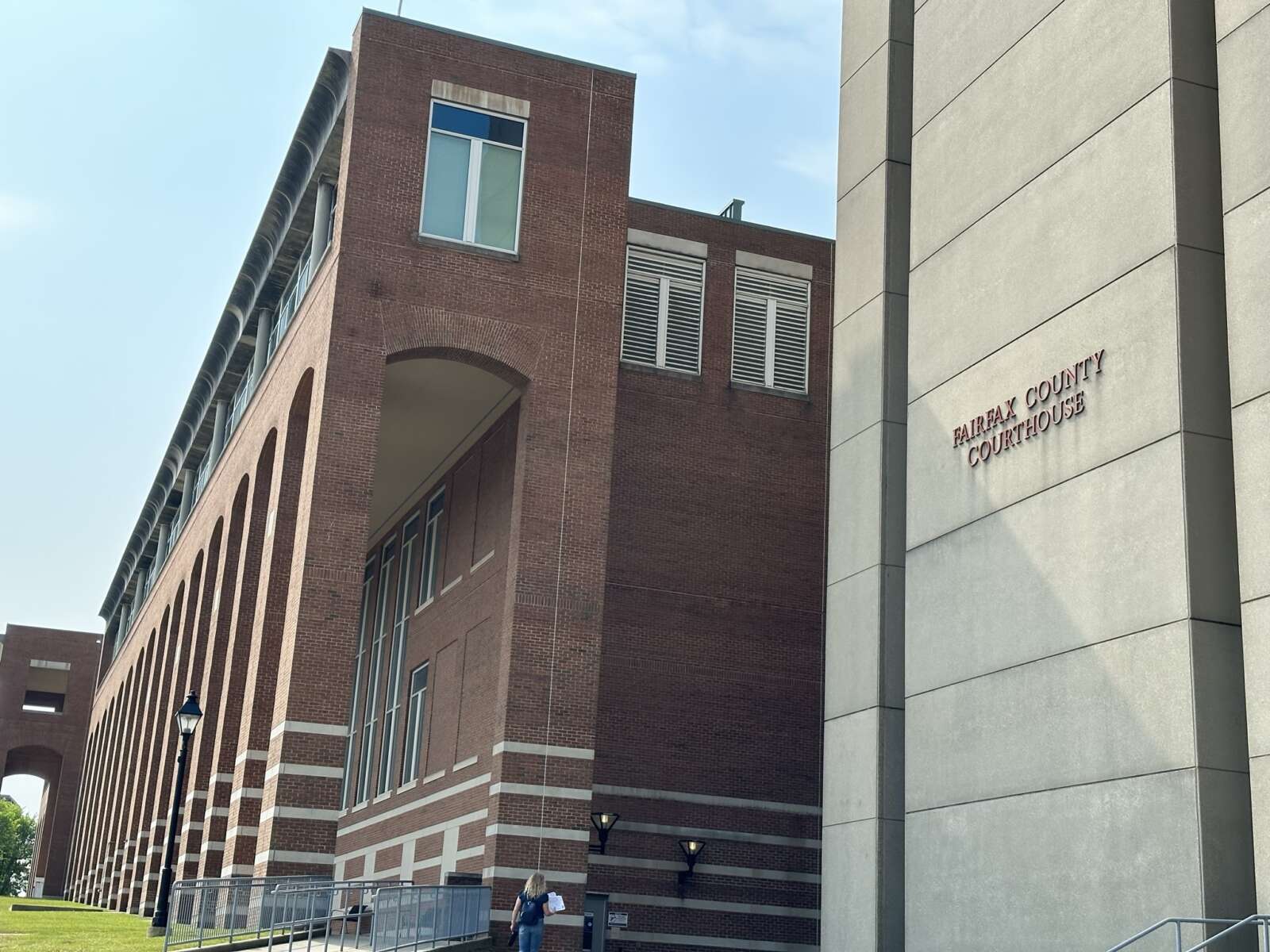
A Fairfax County judge is weighing whether to throw out a lawsuit from environmental groups challenging Republican Gov. Glenn Youngkin’s effort to remove Virginia from a regional carbon market.
Judge David Oblon heard oral arguments from Virginia Solicitor General Andrew Ferguson and Southern Environmental Law Center Senior Attorney Nate Benforado Friday morning in Fairfax Circuit Court. The hearing, which lasted about 30 minutes, concluded with the judge saying he would take the case under advisement before issuing a written decision.
Ferguson argued on behalf of the State Air Pollution Control Board, the Department of Environmental Quality and DEQ Director Mike Rollband to dismiss the lawsuit filed by SELC on behalf of Faith Alliance for Climate Solutions (FACS), Appalachian Voices, Interfaith Power and Light and the Association of Energy Conservation Professionals. The suit challenges Youngkin’s regulation to remove Virginia from the Regional Greenhouse Gas Initiative.
The Regional Greenhouse Gas Initiative, or RGGI, is a multi-state carbon market that requires electricity producers to purchase allowances to emit carbon. The allowances are then returned to the states; in Virginia, those proceeds are funneled into energy efficiency and flood resilience programs.
Youngkin, even before he became governor, has alleged that RGGI creates a “hidden tax” on Virginia utility customers, since utilities in Virginia are allowed to recover costs for the allowances from their ratepayers.
In July, the administration published the regulation to repeal Vrignia’s participation in RGGI at the end of this year.
Environmental groups have decried the withdrawal since Youngkin began pushing for it by citing the funds – over $500 million – it directs toward reducing energy bills for customers by helping homes conserve energy better and preventing flood damage through planning and infrastructure projects.
On Friday, Ferguson opened arguments by stating that out of all the plaintiffs, only the Association of Energy Conservation Professionals had demonstrated any harm worthy of a lawsuit because the group claims that they work with professionals who rely on the revenues the state receives from RGGI. The suit from the other groups, including Fairfax County-based FACS, doesn’t demonstrate that the other entities are directly impacted by the loss of any RGGI revenues, and should be dismissed, Ferguson argued.
The environmental groups could also have jurisdiction in Floyd County, where the Association of Energy Conservation is based, in Richmond where Interfaith Power and Light is headquartered and in Charlottesville, where the Southern Environmental Law Center is based, Ferguson added. He said that in the interest of “judicial economy,” the case should be dismissed entirely and not allowed to be transferred elsewhere, to prevent the plaintiffs from searching for favorable venues. Read More

(Updated at 11:10 a.m. on 10/30/2023) The Democratic-endorsed candidate for the Fairfax County School Board’s Franconia District seat has been disqualified due to an error on her petition to get on the ballot.
The Fairfax County Office of Elections has posted a notice on its website informing voters that Marcia St. John-Cunning was disqualified yesterday (Wednesday) by a Fairfax County Circuit Court order. A judge ruled that her petition was invalid because of an error in her address on its front page.
St. John-Cunning, a former Fairfax County Public Schools interpreter and family liaison, is competing against Republican-endorsed Kevin Pinkney, a lawyer, to succeed Tamara Derenak-Kaufax, who announced in January that she wouldn’t seek reelection after 12 years on the school board.
(Correction: The spelling of Kevin Pinkney’s name has been fixed.)
Though the school board races are nonpartisan, candidates can get political party endorsements. The Fairfax County Democratic Committee (FCDC) allowed registered members to vote for its endorsements for the first time this year, though St. John-Cunning’s bid for support in the Franconia District was uncontested.
The complaint that led to St. John-Cunning’s disqualification was filed by the 8th Congressional District Republican Committee and two voters in that district, who argued that Fairfax County General Registrar and Director of Elections Eric Spicer should’ve invalidated her ballot petition over the address error, Patch reported.
Judge Richard Gardiner ruled that Spicer “violated his non-discretionary ministerial duty” by not invalidating the seventh page of St. John-Cunning’s petition, according to his order.
“The pages denoted as ‘4’ in the lower right corner does not have her address on the front page,” the order said. “Therefore, this petition page and the signatures on the front and back page are invalid as a matter of law.”
Eleven signatures were deemed invalid, putting St. John-Cunning below the 125 signatures needed to get on the ballot, according to Patch.
A previous lawsuit that took issue with six signatures on her petition was dismissed.
The Fairfax County Republican Committee and an attorney for the plaintiffs praised Gardiner’s ruling as “a clear victory for the rule of law.”
“The public’s confidence in the integrity of our elections depends on the law being applied consistently to all candidates, regardless of party or position,” the attorney, Trey Mayfield, said. “It is the duty of Election Registrar and County Electoral Board to ensure that elections are managed with uniform, law-based standards. They should do so without the courts having to order them to perform those obligations.”
The FCDC, however, blasted Gardiner and the Virginia Department of Elections for disqualifying its supported candidate, stating that the ruling disenfranchises the over 3,000 Franconia District voters who’ve cast a ballot since early voting for the Nov. 7 general election began on Sept. 22. Read More

Virginia Attorney General Jason Miyares announced [on Tuesday] the commonwealth is joining 32 other states in a federal lawsuit against Meta over allegations its social media platforms are purposely harmful to children.
The lawsuit alleges that Meta knew about the extent of the psychological and health harms suffered by young users addicted to its platforms, including Facebook and Instagram, but falsely assured the public they are safe and suitable for children and teens.
It also claims Meta’s business model exploits and monetizes young users through data harvesting and targeted ads by designing purposely-addictive platform features.
The suit alleges features such as auto-play, algorithms and near-constant alerts were knowingly created with the express goal of hooking children and teens into descending “rabbit holes.” In turn, the suit claims young users can be exposed to harmful content such as suicide and self-harm content, hate speech and misinformation.
The suit claims Meta also has a “deep understanding” of the significant and extensive harms to young people associated with addiction and compulsive use of the platforms, including depression, eating disorders, physical self-harm and suicidal ideation.
Miyares compared Meta to big tobacco companies advertising to children, pointing to the Joe Camel cartoon as a way to hook young people on cigarettes.
“At the expense of public health and specifically the health of our youth, they’ve exploited the vulnerability of our young children and the fundamental desire for connection for their own personal gain,” Miyares said during a press conference on Tuesday.
Additionally, the suit alleges Meta is well aware that kids under the age of 13 are on their platform, but still collects data from these children without first obtaining verifiable parental consent as required by the federal Children’s Online Privacy Protection Act.
Miyares said that Meta could obtain parental consent using age verification technologies, like uploading a drivers license or official government identification. When asked about the potential for data breaches seen in states requiring third-party age verification methods to access pornographic websites, Miyares reiterated the technology is a great first step to protecting children.
“Let’s try to protect our kids, let’s try to protect their innocence and let’s make sure parents are involved and parents matter,” Miyares said.
Gov. Glenn Youngkin has previously expressed similar concerns that parents need to be more involved in efforts to mitigate the impact of social media on children and teenagers.
Youngkin proposed an amendment to Virginia’s pornographic website age verification law that would have extended the age of children who require parental consent for social media accounts from under 13 to under 18. The Senate narrowly rejected the proposal.
At a “Parents Matter” town hall this August, Youngkin heavily emphasized the importance of parents’ involvement in their child’s social media life.
Miyares said he hopes Meta complies with consumer protection laws and prioritizes the safety of children moving forward, and if not, he isn’t afraid of the fight.
“We would welcome the opportunity to have a meaningful discussion about how they could change their platforms to better protect our children and our teens,” Miyares said. “You chose to fight us, we’ll see you in court.”
Image via Brett Jordan/Unsplash. This article was reported and written by the Virginia Mercury, and has been reprinted with permission.
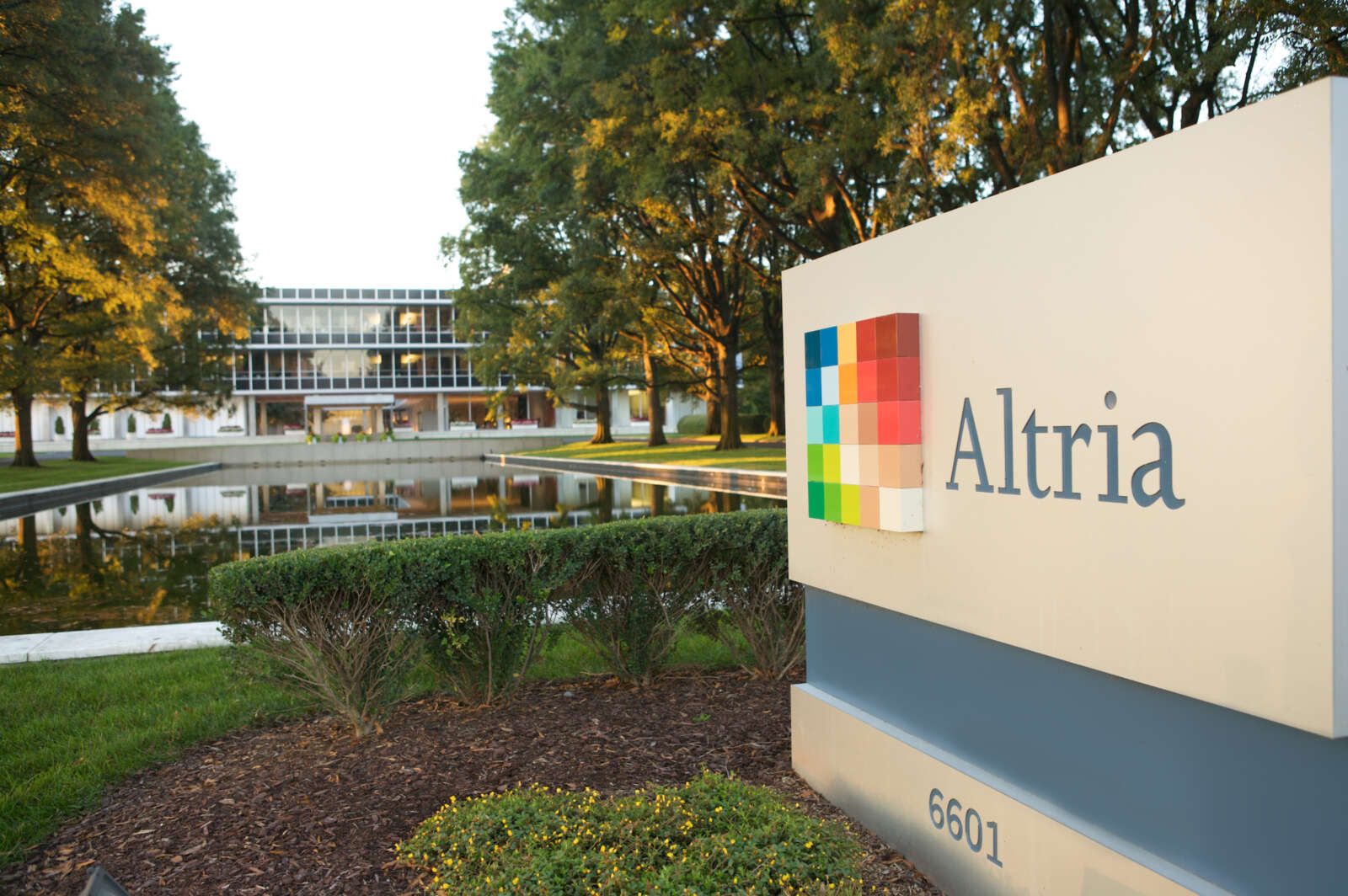
Fairfax County Public Schools will receive money to support student wellness after settling its portion of a class action lawsuit against the vaping company Juul Labs.
The Fairfax County School Board reached a settlement on Aug. 31 with Altria Group, which owns several tobacco companies — including cigarette maker Philip Morris USA — and has a 35% ownership stake in Juul, FCPS announced on Sept. 19. The news was previously reported by DC News Now.
The school system had already agreed to settlements with the other defendants in the lawsuit, which was filed on July 26, 2022 in California and accused Juul of intentionally marketing its flavored, nicotine-based e-cigarettes to a younger audience, fueling a surge in vaping among teens.
Other D.C.-area school systems involved in litigation against Juul include Loudoun, Prince William, Anne Arundel and Prince George’s County, which is using a $2.3 million settlement to combat youth vaping and nicotine addiction, according to the Washington Post.
“We are pleased that there has been an acknowledgment of the potential for harm that these products can cause our students,” School Board chair and Dranesville District representative Elaine Tholen said in a statement. “The settlement will be carefully allocated to support our students’ health and wellbeing.”
According to an FCPS spokesperson, the school system can’t disclose how much money it’ll receive under terms of its settlement agreement, but it will publicly release a plan outlining how the funds will be spent “at a later date.”
FCPS says the funds will be allocated to “student wellness programs across the division.”
Juul didn’t return a request for comment by press time. When contacted by FFXnow, Altria said the FCPS lawsuit was among those addressed in a May announcement that it had agreed to resolve over 6,000 Juul-related cases.
“While we continue to believe the claims against us are meritless, we believe this settlement avoids the uncertainty and expense of a protracted legal process and is in the best interest of our shareholders,” Altria Executive Vice President and general counsel Murray Garnick said. “This settlement brings to a close the vast majority of our pending JUUL-related litigation.”
Launched in 2015, Juul quickly came to dominate the U.S. e-cigarette market by selling flavored pods that became popular among teens, though the company said its products were intended for adult smokers as an alternative to traditional cigarettes.
As of 2022, nearly 85% of underage e-cigarette users reported using flavored products, according to the Centers for Disease Control and Prevention.
After the Food and Drug Administration launched an investigation in 2018, Juul halted sales of most of its flavored vapes, and it has since settled thousands of lawsuits from individuals, schools, local and state governments, and Native American tribes.
Virginia is receiving $16.1 million over a decade as part of a settlement agreement from last year that involved more than 30 states. Juul also agreed to pay $462 million in April to six states and D.C. that filed a separate lawsuit.
Vaping is banned in FCPS, which reported in 2020 that an uptick in vaping reversed progress in students being drug-free. The school system recently tested vape detection sensors in some school bathrooms, but Superintendent Michelle Reid told the school board in May that the pilot had “mixed results so far.”

The Coalition for TJ is petitioning the U.S. Supreme Court to consider its lawsuit challenging the constitutionality of Thomas Jefferson High School for Science and Technology’s admissions policy, which was revised in 2020 with the goal of diversifying the student body.
In the petition filed Monday (Aug. 21), the advocacy group argues that the changes approved by the Fairfax County School Board discriminate against Asian students, who saw their share of the magnet school’s incoming classes drop from more than 70% to closer to 60% in the past few years.
The coalition indicated it would take the case to the country’s highest federal court after a Fourth Circuit Court of Appeals panel ruled 2-1 in the school board’s favor on May 23.
But the fight over TJ’s admissions has grown in significance following the Supreme Court’s June 29 decision to prohibit colleges from considering race in admissions decisions. Where that case tackled policies that explicitly take race into account, the Coalition for TJ contends that race-neutral policies designed to boost underrepresented groups can still violate other students’ equal protection rights.
“The Fourth Circuit’s ruling merits this Court’s review because it presents a question of national importance that the Court has yet to answer directly,” Pacific Legal Foundation attorneys representing the coalition wrote in their petition. “Coming as it does on the heels of last Term’s decision curtailing racial discrimination in higher education admissions, this is one of several ongoing challenges to competitive K-12 admissions criteria that seek to accomplish a racial objective ‘indirectly’ because it ‘cannot be done directly.'”
Spurred by student and alumni activism, the school board overhauled the TJ admissions process after Fairfax County Public Schools reported that fewer than 10 Black students had been accepted in both 2019 and 2020.
In addition to eliminating an application fee and rigorous standardized test, the new policy bumped up the GPA requirement to 3.5, granted eligibility to the top 1.5% of eighth graders at each middle school, introduced a “portrait sheet” where students discuss their skills and write a problem-solving essay, and allows consideration of students’ economic status or involvement in English as a Second Language and special education programs.
The changes were the latest attempt to bring more Black, Hispanic and low-income students to TJ, which is often ranked among the top high schools in the U.S. but has long faced scrutiny for admissions practices that critics argued catered to families who could afford to live in certain neighborhoods and pay for private tutoring and test-preparation services.
Since the revised policy took effect in 2021, FCPS has touted increased racial, geographic and economic diversity in each of the three admitted classes, which have all included students from every Fairfax County middle school — something that hadn’t happened in the prior decade.
FCPS has argued that the changes were race-blind and benefitted all groups, including lower-income Asian students. The appeals court judges who sided with the school board said the Coalition for TJ failed to prove that Asian students were “disparately” affected and “that the Board adopted its race-neutral policy with any discriminatory intent.”
FCPS didn’t return a request for comment by press time.
In a joint statement, a collection of civil rights and community advocacy groups — including the Virginia NAACP, TJ Alumni for Racial Justice, CASA Virginia, Hispanic Federation, Hamkae Center and Asian American Youth Leadership Empowerment and Development (AALEAD) — argued that the Coalition for TJ’s lawsuit would limit, rather than expand, equal access to education.
“In essence, the plaintiff seeks to cement pre-existing inequalities by prohibiting school districts from trying to remedy any unfairness in the admissions process that may change the racial makeup of accepted students,” the groups said.
“Every parent wants to know their child will not be disadvantaged in our public education system no matter their personal wealth or language abilities,” Hamkae Center Director Sookyung Oh said. “It is imperative that students from communities of color, including Asian Americans, will not be disadvantaged by an unfair admissions process and will have the same access…only previously afforded to those with the wealth and privilege to get their children into schools like TJ.”

Several environmental groups, including one based in Fairfax County, have joined forces to challenge Gov. Glenn Youngkin’s decision to pull Virginia out of a cross-state initiative aimed at reducing carbon emissions.
The Southern Environmental Law Center announced on Monday (July 31) that it will appeal Virginia’s planned withdrawal from the Regional Greenhouse Gas Initiative (RGGI), a market of 12 states on the East Coast that regulates carbon emissions from power generators.
The appeal will be filed in Fairfax County Circuit Court on behalf of Appalachian Voices, the Association of Energy Conservation Professionals, Virginia Interfaith Power and Light and the Faith Alliance for Climate Solutions (FACS), a Fairfax County-focused coalition of religious communities pushing for action to address climate change.
The notice of appeal was served on the same day that the proposal to drop out of the RGGI was published in the Virginia Register, opening a period of public comments until the regulation takes effect on Aug. 30.
“The Regional Greenhouse Gas Initiative…has cut a huge amount of pollution from power plants, while protecting Virginians from the increasing impacts of climate change,” FACS Executive Director Andrea McGimsey said. “RGGI helps us leave a better world to our children and grandchildren, and we will continue to vigorously defend Virginia’s participation in this successful, bipartisan program.”
Established in 2005, the RGGI imposes a cap on carbon emissions from power plants in all participating states, requiring generators to buy “allowances” at quarterly auctions for every short ton of carbon they produce.
On Jan. 1, 2021, Virginia became the first southern state to join the initiative under then-governor Ralph Northam, who also signed legislation mandating an end to the use of coal-fired power plants after 2024 and requiring Dominion Energy to go carbon-free by 2045.
However, Youngkin issued an executive order on Jan. 15, 2022 calling for a reevaluation of Virginia’s participation and signaling his plans to withdraw. He argued that utilities have passed on the costs of purchasing allowances to customers, noting that residents served by Dominion Energy saw an average increase in their electricity bills of $2.39 per month.
Dominion suspended the surcharge after Youngkin announced his withdrawal plan, but last month, the State Corporation Commission approved its return. The fee of $4.44 for a “standard” customer will take effect on Sept. 1, even though the State Air Pollution Control Board voted 4-3 on June 7 to take Virginia out of the RGGI.
“RGGI remains a regressive tax which does not do anything to incentivize the reduction of emissions in Virginia,” Virginia Secretary of Natural and Historic Resources Travis Voyles said in a statement shared by Youngkin’s office. “…Virginians will see a lower energy bill in due time because we are withdrawing from RGGI through a regulatory process.”
Environmental advocates dispute the assertion that the RGGI hasn’t resulted in any benefits. In fact, Virginia saw an over 16% drop in power plant emissions after two years in the initiative based on Environmental Protection Agency data, according to FACS Vice Chair Scott Peterson.
The state also devotes half of its proceeds from the allowance auctions — totaling $250 million over the first two years — to energy efficiency programs for affordable housing and low-income households. Other funds have been used to support resiliency projects, most of them focused on reducing flooding impacts.
“There is a huge need for this funding not just in coastal areas, but also inland communities that are dealing with increasingly frequent intense storms,” Peterson said. “Almost $100 million has already been awarded to 98 different projects, but this work is long term and only getting started.”
The groups challenging the RGGI withdrawal argue that Youngkin’s administration lacks the authority to reverse a law adopted by the General Assembly. Their appeal must be filed in court within 30 days of the notice going to Air Pollution Control Board and Department of Environmental Quality officials.
“The administration cannot brush aside the laws it disagrees with,” Southern Environmental Law Center senior attorney Nate Benfornado said. “Moreover, Virginians deserve to see the continued benefits of this successful program. This program is vital to Virginia meeting climate goals, while reducing air pollution and improving public health.”
Voyles said Attorney General Jason Miyares’s office confirmed that the control board “has the legal authority to take action on the regulatory proposal using the full regulatory process — and the Board voted to do just that.”
Pending the legal action, Virginia will leave the RGGI when its three-year contract ends Dec. 31.
Photo via Ella Ivanescu/Unsplash

